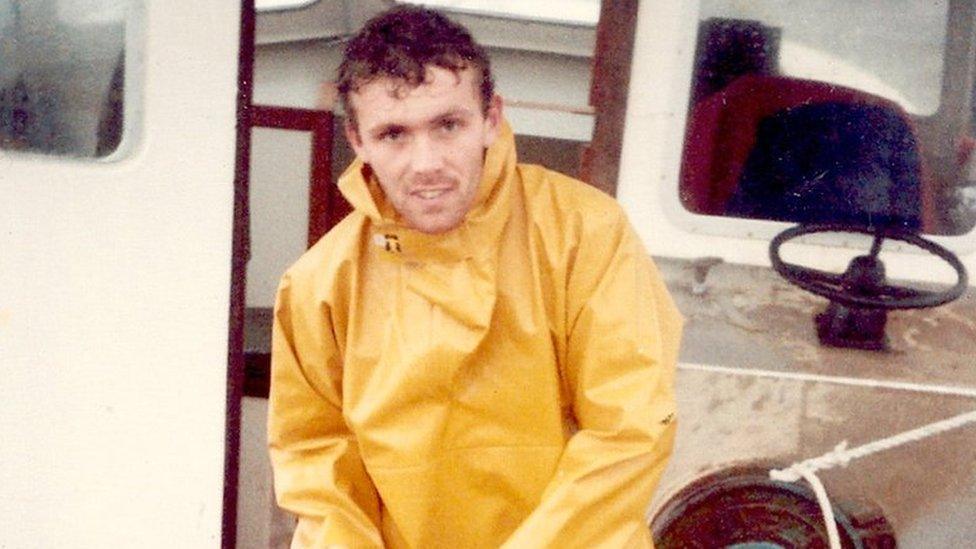Fisherman in £53m drug plot vows to clear name
- Published
£53m drug plot fisherman: 'I am innocent'
A fisherman convicted of trying to smuggle cocaine with a street value of £53m into the UK is to fight to clear his name now that he is out of jail.
Scott Birtwistle, then aged 19, served half of a 14-year sentence. The four others convicted are still in jail.
Birtwistle said the group were on a "routine fishing trip" at the time police claim the crime took place.
Lawyers from the charity the Centre for Criminal Appeals say serious doubts remain over the convictions.
The Criminal Cases Review Commission (CCRC) - the official body that investigates suspected miscarriages of justice - has previously told the BBC's Victoria Derbyshire programme the prosecution case was "compelling".
What happened?
On 29 May 2010, a major surveillance operation was under way in the English Channel, based on intelligence that cocaine was on board a container ship from South America.
One of the ships being monitored and the men's fishing boat briefly came close together - though exactly how close is still disputed.
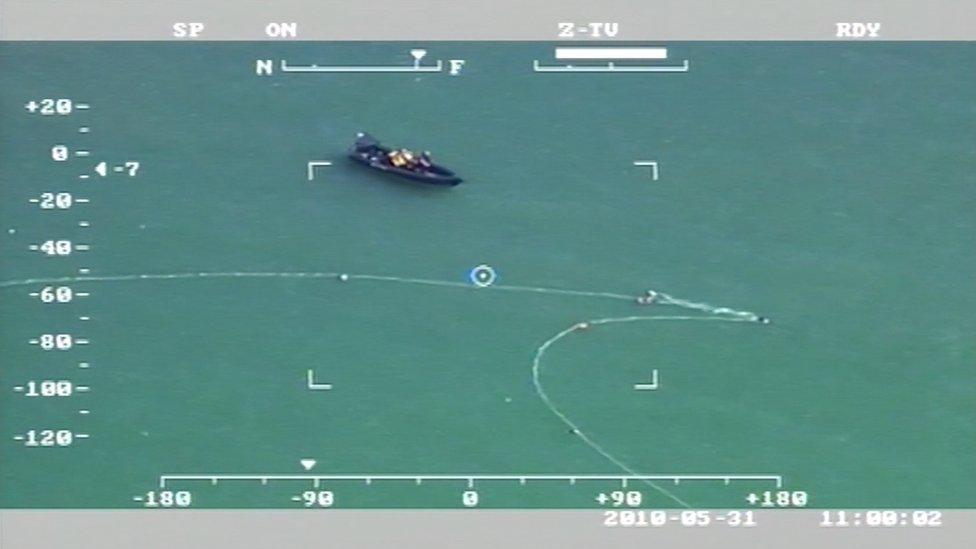
Police helicopter footage shows the white rope connecting the sacks of cocaine
The next day, 11 holdalls were found tangled around a buoy in Freshwater Bay to the south of the Isle of Wight, each packed with a pure form of cocaine with a total street value of £53m.
The prosecution's case was that the sacks were pushed off the side of the container ship for the fishermen to pick up and then drop off in the bay to be collected later.
Lawyer Emily Bolton asks: Why was there no trace of cocaine?
The men's lawyers at the Centre for Criminal Appeals say navigational data - not seen at the original trial - shows the paths of the boats never crossed.
A detailed forensic search could not find a single trace of cocaine on board the fishing boat.
The drugs were wrapped in sealed plastic sacks but there is some evidence that water leaked into the powder.
Found guilty
In his first interview since his release, Birtwistle told the BBC's Victoria Derbyshire programme it "didn't seem real" when the men were found guilty by majority verdict.
He said having seen the prosecution's "circumstantial evidence" he thought there was "nothing whatsoever" to be nervous about.
"There is no proof or even facts. I have lost the last seven years of my life, for literally nothing at all.
"They found cocaine. But they didn't know whose it was, where it had come from. And we were just in the wrong place at the wrong time."
Police haul in cocaine with a street value of £53m, found off the Isle of Wight
Two Hampshire Police officers stationed on cliffs as part of the surveillance operation spotted "six to seven" items being thrown off the men's fishing boat as it sailed through Freshwater Bay.
The following day, 11 coloured sacks of cocaine were found wrapped around a buoy by a member of the public in the same area.
After the cocaine was seized by police, the officers involved altered the surveillance log to clarify what they had seen.
The entry changed from "six to seven" objects to "10 to 12 items the size of a holdall tied together in a line followed by a buoy", an exact description of the drugs in the bay.
The independent police watchdog did carry out an investigation. Though it found inconsistencies in the officers' evidence, it decided it was not enough to show they had fabricated their accounts.
A recent CCRC review also found no evidence of malice or serious misconduct by either the police or the Serious Organised Crime Agency (Soca).
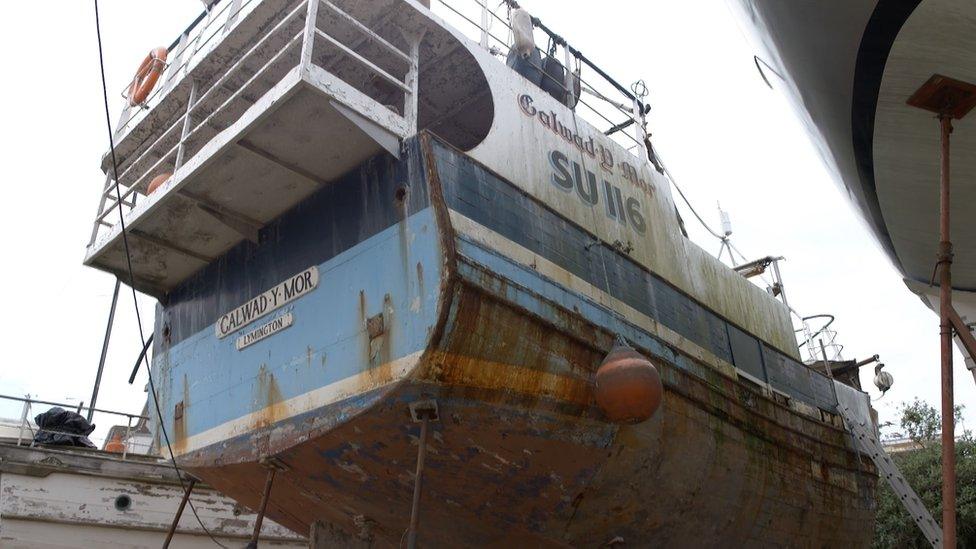
The men's fishing boat, the Galwad, has not seen the sea for years
Birtwistle said he remembered "throwing some black bags of rubbish" off the boat, but denies it was cocaine.
"You are clearing bits of cardboard, the bait... the food you are using."
He said the investigations into police conduct are an example of the authorities "looking after their own."
"They've obviously spent so many millions of pounds on this case already, and how is it going to look in the public eye when this all eventually comes out, which it will?"
Mobile phone
The CCRC points to other parts of the prosecution case, which it describes as "compelling".
That night there was a new man on the fishing boat, Zoran Dresic.
At trial it emerged he was in the country illegally.
Birtwistle said it was "incredibly hard to get crew, especially English crew", so it was "nothing out of the ordinary" for an untested immigrant to be used.
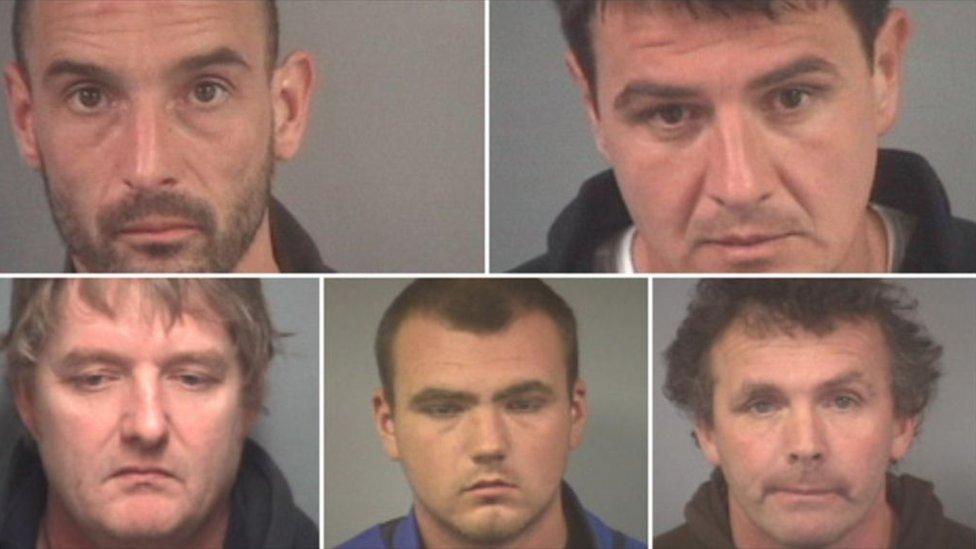
Police mugshots, from top-left: Daniel Payne, Zoran Dresic, Jonathan Beere, Scott Birtwistle, Jamie Green
The prosecution made the case that Dresic was the connection to the drugs, and was on board to supervise the pick-up.
As the men navigated their way through the Channel, a number of calls were made to the satellite phone on the fishing boat from a mobile handset purchased that day with a fake name.
The defence said Dresic was seasick and trying to get in touch with a man on the mainland who set up his job.
"Anyone seeing that is going to think it's suspect," Birtwistle admits.
"But he was an illegal immigrant, so obviously you are not going to want to be associated with a contract phone in your name."
The next stage
Last year, the Criminal Cases Review Commission (CCRC), the body which investigates possible miscarriages of justice, completed a long review of the case, ruling there was not enough new evidence to send it back to the Court of Appeal.
Lawyers for two of the men still in prison are now preparing a separate appeal directly to a judge to decide if there should be a retrial or dismissal.
"I can't imagine what some of the other families have gone through," Birtwistle said, adding that he would continue campaigning "no matter what".
"Surely if I was guilty I would just let it lie and serve my time. Why would I keep fighting now I've been released from prison? What would be the sense in that?"
Watch the BBC's Victoria Derbyshire programme on weekdays between 09:00 and 11:00 on BBC Two and the BBC News Channel in the UK.
- Published5 December 2017
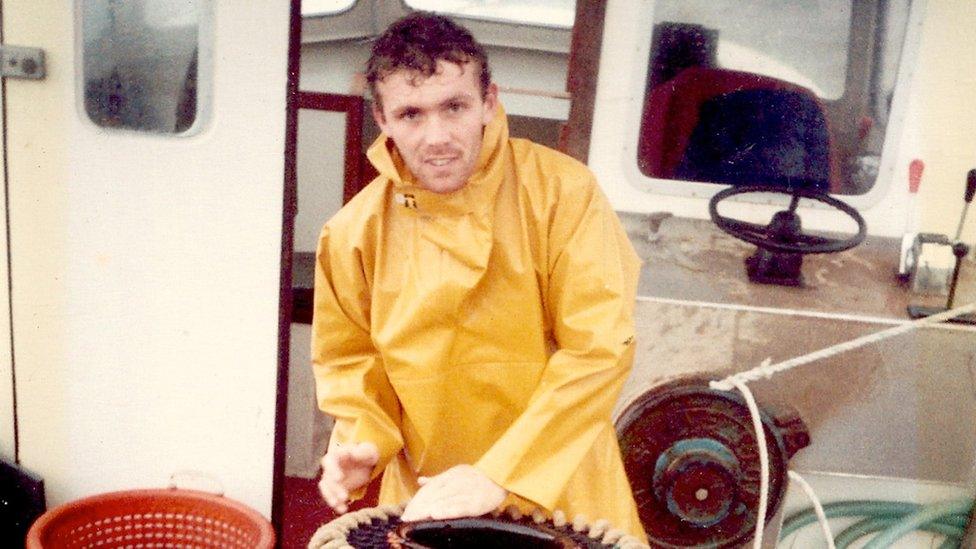
- Published19 July 2016
